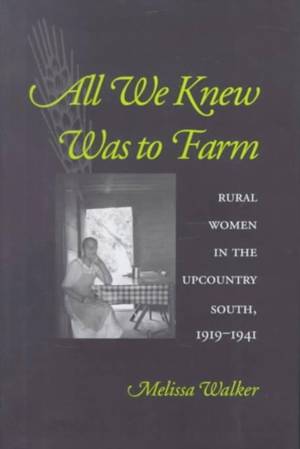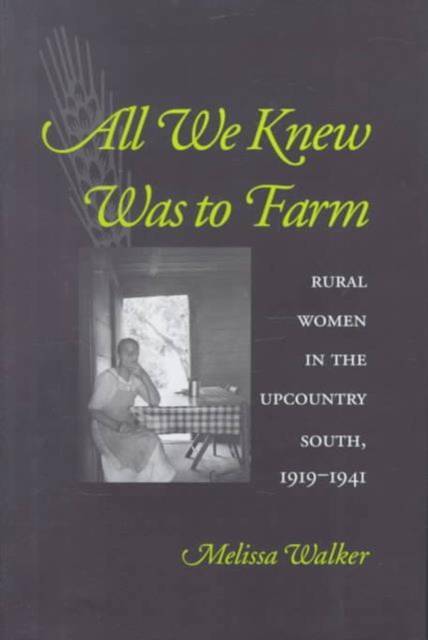
- Retrait gratuit dans votre magasin Club
- 7.000.000 titres dans notre catalogue
- Payer en toute sécurité
- Toujours un magasin près de chez vous
- Retrait gratuit dans votre magasin Club
- 7.000.0000 titres dans notre catalogue
- Payer en toute sécurité
- Toujours un magasin près de chez vous
Description
Winner of the Willie Lee Rose Prize from the Southern Association for Women Historians
In the years after World War I, Southern farm women found their world changing. A postwar plunge in farm prices stretched into a twenty-year agricultural depression and New Deal programs eventually transformed the economy. Many families left their land to make way for larger commercial farms. New industries and the intervention of big government in once insular communities marked a turning point in the struggle of upcountry women--forcing new choices and the redefinition of traditional ways of life.
Melissa Walker's All We Knew Was to Farm draws on interviews, archives, and family and government records to reconstruct the conflict between rural women and bewildering and unsettling change. Some women adapted by becoming partners in farm operations, adopting the roles of consumers and homemakers, taking off-farm jobs, or leaving the land. The material lives of rural upcountry women improved dramatically by midcentury--yet in becoming middle class, Walker concludes, the women found their experiences both broadened and circumscribed.
Spécifications
Parties prenantes
- Auteur(s) :
- Editeur:
Contenu
- Nombre de pages :
- 344
- Langue:
- Anglais
- Collection :
Caractéristiques
- EAN:
- 9780801863189
- Date de parution :
- 11-05-00
- Format:
- Livre relié
- Format numérique:
- Genaaid
- Dimensions :
- 162 mm x 238 mm
- Poids :
- 621 g

Les avis
Nous publions uniquement les avis qui respectent les conditions requises. Consultez nos conditions pour les avis.






